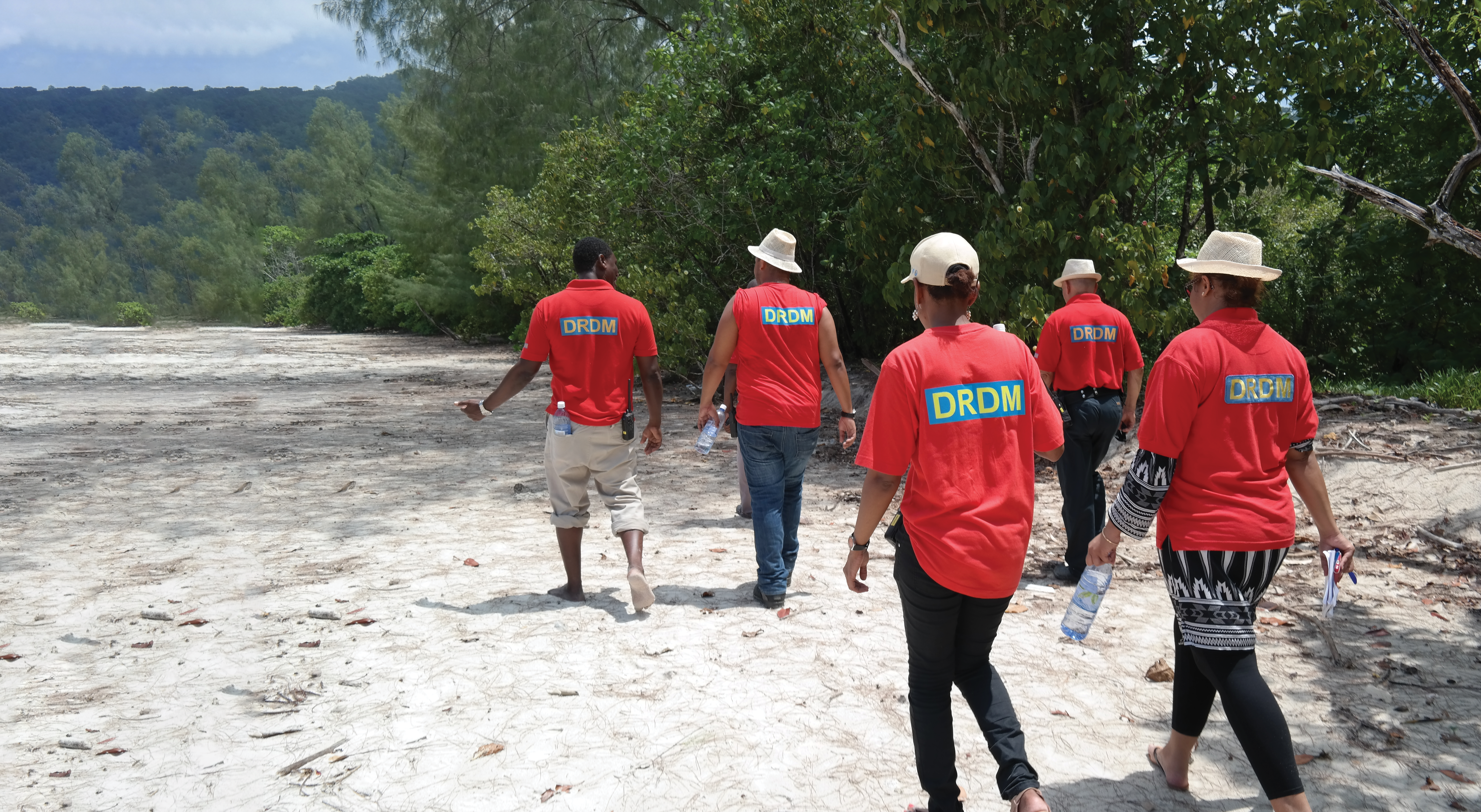
Seychelles National Integrated Emergency Management Plan. Department of Risk and Disaster Management (Photo credit: World Bank)
Governments across Sub-Saharan Africa have often lacked the resources they need to act and respond swiftly when disaster strikes. In response, GFDRR-supported programs are delivering technical assistance to Cabo Verde, Kenya, Malawi, and the Seychelles, as these governments are working to structure and prepare Development Policy Loans with Catastrophe Deferred Drawdown Options (Cat DDOs). These contingent lines of credit, available for the first time to IDA countries through IDA 18, provide immediate liquidity in the aftermath of a disaster and are based on a series of policy actions that are designed to strengthen a country’s disaster risk management capacity. Policy-based lending operations help support governments’ commitment to implementing comprehensive strategies, policies, legal reforms, and institutional frameworks that provide direction and coherence to country-level DRM programs.
So far, in 17 Sub-Saharan African countries, 98 regulatory, institutional, and policy actions have been formulated and implemented, spanning key areas such as access to information, institutional coordination, asset loss reduction, socioeconomic resilience, and resilient territorial and development planning.
RESULTS IN NUMBERS
98 regulatory, institutional and policy actions for resilience and disaster risk management spanning key areas such as access to information, institutional coordination, asset loss reduction, socio-economic resilience, and resilient territorial and development planning
For example, in Malawi, the $70 million IDA-financed Cat DDO, approved in June 2019, has accelerated the implementation of eight high-level reforms in the country’s disaster risk management policy and institutional regime. At the top of Malawi’s reform agenda is the recent approval by the country’s cabinet of ministers of a historic disaster risk management bill that will shift the focus of DRM from emergency response to holistic and longer-term resilience.
Malawi has also adopted policies that will mainstream disaster and climate resilience into the country’s urban development, transport, and education programs. The government will also be implementing a plan for the development of a shock responsive social protection system to save the most vulnerable when disaster strikes.
Overall, work in this area in Sub-Saharan Africa has facilitated the approval of $287 million in Cat DDOs—including for Cabo Verde ($10 million), Kenya ($200 million), Malawi ($70 million), and the Seychelles ($7 million)—and helped drive progress that includes monitoring and evaluation systems for the policy frameworks to ensure that they contribute to bolstering resilience over the long term. Preparation work for similar programs is now underway in Benin, Lesotho, and Madagascar as well.
